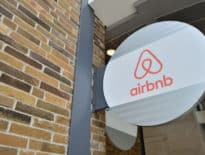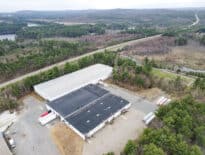Backers of a multifamily rezoning effort were thoroughly routed in Newton last night’s local elections, while a slate of councilors who backed one of the biggest housing-focused upzonings in recent Cambridge history cruised to victory.
In short, with plans to allow more multifamily development in Boston’s suburbs on the ballot in several cities with MBTA service last night, voters turning in mixed results.
A slate of candidates backed by a group called “Save Newton’s Villages” sent several veteran Newton city councilors packing for their support of upzoning areas around the city’s MBTA Green Line and commuter rail stations. Most surprising of Tuesday night’s defeats: at-large Councilor Deb Crossley, who chaired the council’s Zoning and Planning Committee and who had shepherded what had been called the “Village Centers” rezoning effort since its inception several years ago as a way to bring more foot traffic to the city’s small retailers. Like 11 other cities and towns with MBTA subway service, Newton faces a Dec. 31 deadline to come into compliance with the state’s MBTA Communities transit-oriented housing zoning law.
Preliminary election results posted by the Newton city clerk’s office showed candidates Stephen Farrell, David Micley, Randy Block, Alan Lobovitz and Rena Getz all unseated incumbent rezoning backers in a mix of district and at-large races, sometimes by wide margins. Only one of the Save Newton’s Villages slate, Lisa Gordon, lost her race.
“The opposition has been relentless with their lies and their misinformation and disinformation,” said City Council President Susan Albright, one of the pro-rezoning candidates who lost their seats last night, calling it “a sad day for our city”
“I don’t think the pro-zoning side was on their toes enough to combat it,” she added.
Albright and Charles River Chamber Executive Director Greg Reibman, a business leader and prominent rezoning advocate, both criticized rezoning opponents’ tactics, which included claims the rezoning proposal would add thousands more new apartments than it would, lawn signs that Reibman alleged depicted buildings much taller than would be allowed under the rezoning proposal and a last-minute flurry of advertising online and on social media by a political action committee that took the name of the main pro-rezoning coalition, Newton For Everyone, but directed voters to vote for candidates that opposed the rezoning proposal.
“We don’t know how many voters were mislead by those, but they put in a lot of effort to mislead,” Reibman said.
Wins in Other Cities
In Cambridge, the story was nearly the reverse. Just three weeks after rezoning the city’s major roads and commercial districts to allow for affordable housing developments as tall as 15 stories in some places, and following a term that saw parking minimums eliminated, pro-housing development councilors retained their six-person supermajority on the nine-member Cambridge City Council in part by adding two new, pro-housing development candidates to replace two allied councilors who chose not to seek reelection.
“Honestly, I think it’s great. This has been an extremely ambitious term for housing reform,” said Councilor Burhan Azeem, the top vote-getter in the race after Mayor Sumbul Siddiqui and a leading voice in the city’s zoning reform debate. “To get so much done and be rewarded for it is really interesting dynamic.”
Azeem added that he hopes the next council term tackles even more zoning reform ideas in the coming two years, like eliminating single-family zoning.
Becca Schofield, one of the volunteer leaders of the city’s main pro-housing advocacy group A Better Cambridge, said in an email the election results “absolutely indicate that affordable housing is the #1 priority for Cambridge voters, who elected a pro-housing majority committed to building more and furthering housing equity in our city.”
Other cities saw pro-development voices elected or retain their seats. Medford voters returned Briana Lungo-Koehn to a third two-year term as mayor after she pushed to upzone parts of the city around its MBTA Orange Line station at Wellington Circle and redevelop city-owned lots in Medford Center, among other initiatives.
“Since taking office, my team has worked with the City Council to bring the necessary changes to our zoning that prioritize transit-oriented development, accessible green space and easily navigable commercial corridors. I am thrilled that the community recognizes the importance of this collaborative work and what it means for the future or Medford,” Lungo-Koehn said in a statement.
And in Braintree, Mayor Charles Kokoros lost to former city Planning Board chair Erin Joyce after refusing to release his administration’s plan to bring the city into compliance with the state’s MBTA Communities law until after the election. Joyce had been openly critical of Kokoros’ move on the campaign trail. She did not respond to an email seeking comment but during a debate organized by a neighborhood group Joyce declared she would take Braintree’s recently completed master plan and “catapult” it into a zoning rewrite. That plan called for the large retail and industrial district next to Braintree’s MBTA Red Line terminal rezoned to allow for more housing development as the city’s main strategy for complying with the MBTA Communities law.
Newton Leaders Face Pivotal Choice
The Newton City Council is still poised to take up the most recent iteration of the Village Centers rezoning proposal next week, Albright said, with proposed amendments already on the table that could curtail the number of neighborhoods involved and pare the number of new and existing multifamily units allowed back to the bare minimum of 8,330, as required by the state. The current proposal would allow around 10,000 to be built, including in village centers that don’t have Green Line or commuter rail access – a difference at the heart of many of the election winners’ campaigns.
“I don’t know where the votes are for” those amendments, Albright said. “Everything is on the table right now, including passing the whole package.”
Farrell, Micley, Lobovitz and Getz did not return emails seeking comment. Block said in an email “I am still considering what impact our election will have on many issues including zoning that will come before the Council.”
The newly-elected councilors won’t take theirs seats until January, and Albright said she and other rezoning supporters will have to weigh whether or not to compromise on the scale of the rezoning after the election.
“If we were to take the non-MBTA villages out, with the councilors coming in the chances of getting them in later on are slim to none,” she said.
Newton Mayor Ruthann Fuller said in a statement that the proposal coming before the full council next week “provides for compliance with the State’s MBTA Communities Act. I expect that the City Council will pass the necessary zoning to meet the State’s deadline of Dec. 31.”
Another fear: Rezoning opponents have been threatening a referendum to overturn council approval of the rezoning package. That could open the door to let other communities along commuter rail lines, that face a December 2024 deadline, to buck the law, Reibman said, or even lead to a court case that puts the entire the MBTA Communities law into question.
“No matter what, it likely delays implementation of this for many communities,” he said.
Jesse Kanson-Benanav, head of housing advocacy group Abundant Housing-MA, said the mixed results show a clear divide between renters, who feel the region’s housing shortage most acutely, and existing homeowners on how urgent the state’s housing shortage is.
“I think what these election results, particularly in Newton, show is that it can be dangerous to leave those critical decisions about how we build vibrant and welcoming communities up to councils that tend to be dominated – as members and the people who elect them – by wealthier, whiter voters who are opposed to rezoning,” he said.







